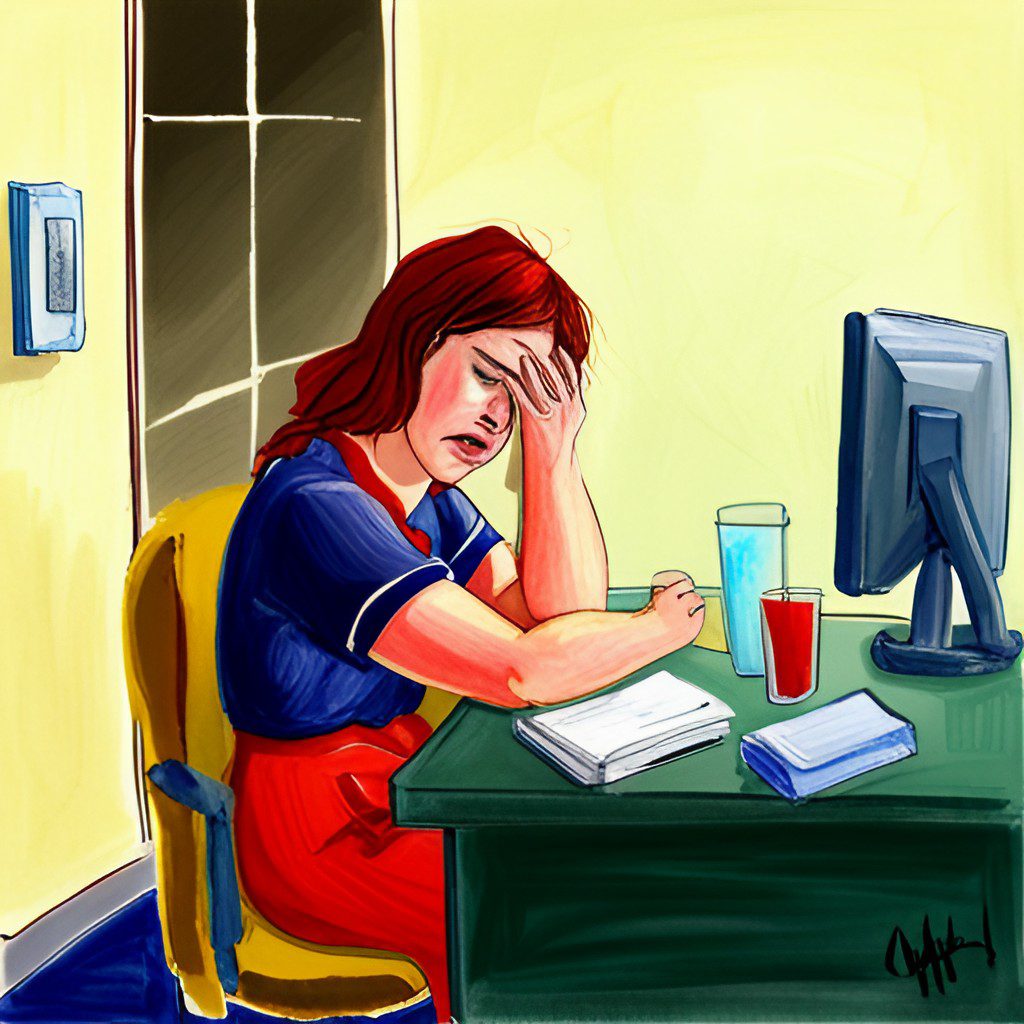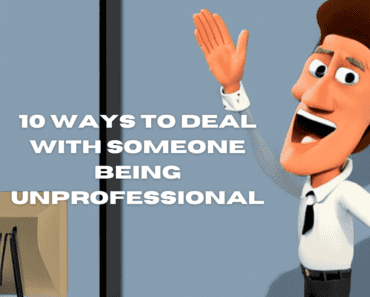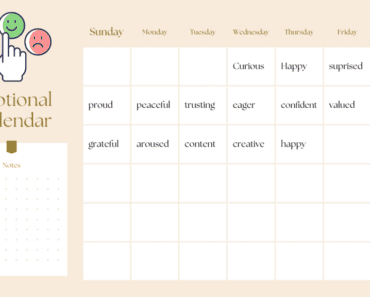For many people, crying is an important release in life. It’s a part of the healing process and can help us to feel better. But sometimes you are in a place or situation where crying is just going to make things worse or cause others to misinterpret what you are feeling. And, sometimes crying can interfere with your daily life in a way that affects your health, work, and relationships.
Why Are You Crying?

First, it’s important to understand why we cry. It’s often triggered by overwhelming emotions – such as empathy or sadness.
While some people cry only when sad, others cry during all kinds of emotions. It could be due to joy, stress, frustration, or even anger. Or it could simply occur as an emotional reaction to something that happened unexpectedly.
Crying is also a reminder that we are human and have feelings that need to be processed and expressed in order for us to move forward in life.
It also helps to clear our minds and can be a way of calming ourselves down. Many people feel better after a good cry.
Crying can also help us bond with others. It’s a way of showing support and connection with someone else when they are crying. You know this firsthand if you’ve ever said, “If you cry, I’m going to cry!”
You can read all the theories behind why we cry here.
But we are going to focus on how to STOP crying.
How To Stop Crying Once You Start
If you find yourself in a situation where you need to stop crying, there are some things that you can do. Here are some tips:
- Take slow deep breaths. Focus on your breath and try to calm yourself down. Often breathing can bring us back to center and get us out of our head and relax our emotions.
- Move your body, even if it’s only a small movement like shaking your hands or tapping your feet on the floor. This can distract you from whatever is making you cry and give you a change to gain control of yourself.
- Count backward from 10 to help take your mind off of what is causing you to cry.
- Talk to yourself in a positive way and tell yourself that everything will be alright in the end. This can contrast any doom and gloom thoughts you may be having.
- Place a cold cloth or ice pack on your eyes to help focus your attention on the present moment and, as a bonus, it will quickly reduce any swelling that’s occurred.
- Distract yourself by reading something or watching a funny video.
- Reach out and talk to someone who you trust and can help you work through your emotions.
- Take a walk outside in nature and take in the sights, sounds, and smells of your surroundings.
Remember that crying is a natural reaction to something that has happened and it’s important to process and express our emotions. It’s okay to cry, but if you need to stop for any reason, use these tips to help you get through the moment.
How To Stop Crying Before It Starts
If you are in a situation where crying isn’t a good idea, but you feel the weepiness of tears coming on, there are some things you can do to stop crying before it starts.
- Pinch yourself – The pain can temporarily distract you from what is making you start to cry and help you focus on something else. I know one person who pinched themselves through an entire funeral because they didn’t want to break down bawling in front of the person they were trying to support. It worked and they ended up holding back the tears and keeping composed at they supported their friend through the distressing process.
- Put a rubber band around your wrist and snap it when you feel the tears coming on – Again, the pain will divert your mind from what is causing the tears. This may not be an ideal thing to do in front of people or in various situations… in fact, crying might be a better option than snapping a band around your wrist and wincing in pain. So use this technique to stop yourself from crying in the right situations.
- Force yourself to smile – Smiling releases endorphins which can help you take your mind off of what is making you want to cry. It can also help distract any negative thoughts that are causing you to want to cry.
- Listen to upbeat music – Music can be a great distraction and the right kind of music can help take your mind off of what is causing you distress.
- Take deep breaths – Focusing on your breath can help reduce stress levels, which will make crying less likely.
- Talk yourself through it – Talk yourself down from getting upset and remind yourself that it’s okay to feel how you do, but crying isn’t the right thing to do in the moment. Often this internal pep talk can help you compose yourself in the moment.
- Exercise – When you feel like crying, taking a walk or doing some light exercise can help clear your mind and reduce stress levels.
- Change your environment – Sometimes simply leaving the room or area can be enough to take away the initial urge to cry.
- Take time for yourself – If possible, give yourself some space and allow yourself to process your emotions in a healthier way before trying to interact with other people. Often other people can provoke emotions and make it harder to stop crying.
- Reach out to a friend – Talking with someone who understands can help you work through your emotions without crying in the moment.
- Write down your thoughts – Writing can be a great way to process difficult emotions without having to worry about anyone seeing what you write. It’s also a good way to come up with solutions or plans for dealing with the situation.
- Focus on something else – Find an activity that you enjoy or distract yourself with a book or TV show to take your mind off of what is causing you distress.
Why An Escape Plan Can Make Things Worse
Some people suggest having an escape plan in place if you feel the need to cry. The theory is you can go off and cry alone and then come back. But, it’s better to stop yourself from crying than run off to cry every time you get the urge.
Firstly, people notice when you are constantly leaving. If you are at work, and you run off to cry in the bathroom every time you get the urge, people are going to notice and it’s going to affect how they view you.
Secondly., it can be hard to stop crying once you start, so escaping from the situation for a minute can turn into half an hour or more. Again, this can affect how people view you. If you are at work, for instance, running away for half and hour breaks when you don’t have a break scheduled isn’t acceptable while other people are consistently working.
Finally, the escape plan could be a sign to yourself that it’s okay to cry no matter what’s going on. This means you might find yourself crying more often and in more situations than you would if you just learned how to stop your tears in the moment.
Constantly Crying? Find Your Triggers!
If you find yourself constantly crying in life, it’s important to find the triggers for your tears. There might be certain situations where you know you’re going to cry, such as being around certain people, but there could also be more subtle triggers that set off your emotions like certain conversations or memories.
Feeling sorry for yourself is a common reason for crying. If you are at work, for instance, and you are feeling sorry for yourself for having to work at the job you do, any negative thing that happens at work can set off a crying episode.
Once you identify your triggers, it’s important to find ways to deal with them. Being mindful of when these triggers come up can help you to be prepared when they take place.
Conclusion
While it can be difficult to learn how to stop yourself from crying during an emotional moment, there are techniques you can use to help. Trying to focus on something else, talking to yourself in your head, or writing down your thoughts can all be useful methods for remaining composed during a difficult situation. However, it’s important to remember that running away from the situation is not always the best approach as it can draw attention and create even more stress.
By understanding your emotional triggers, practicing relaxation techniques, and seeking out professional advice if needed, you can learn to control your emotions and stay composed even during difficult times. With a little bit of effort and patience, you’ll be able to start mastering the art of not crying in no time.
At the same time, don’t forget that it’s perfectly okay to cry when you feel the need to. Sometimes it’s just what our body needs to heal and express our feelings, so don’t be afraid to let your emotions out. Just remember that learning how to stop yourself from crying in a particular moment can help when needed.





